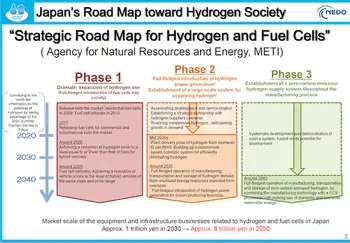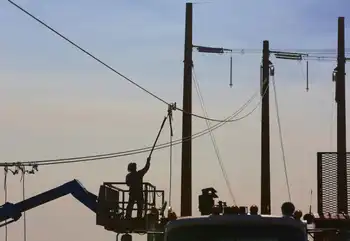Electric industry wants grid improvement
WASHINGTON - - Electricity industry officials said recently they have taken several steps to improve grid reliability since last summer's blackout, but mandatory standards still are needed.
The North American Electric Reliability Council has begun auditing the most critical areas of the nation's power grid and plans to better disclose violations of reliability standards by grid operators. Still, the rules are voluntary and regional monitoring groups lack the authority to enforce compliance.
"A key finding of NERC's investigation that is of greatest concern to me was that existing NERC reliability standards were violated, and that this contributed directly to the blackout,'' Michehl Gent, president of the industry-sponsored council, told members of the Senate Energy and Natural Resources Committee.
Chairman Pete Domenici, R-N.M., urged senators to pass a reworked energy bill now under consideration in the Senate. That bill would empower the Federal Energy Regulatory Commission, whose engineers will participate in the industry audits, to enforce grid reliability rules and to hand down punishments.
A larger, more expensive energy bill has been stalled since last year, prompting some Democrats to accuse Senate Republicans of using the need for mandatory standards as an excuse to get the energy bill passed.
"Don't you think it's somewhat irresponsible not to pass the reliability standards if that is in fact the only standards that we can pass?'' said Sen. Maria Cantwell, D-Wash. "People are holding this reliability bill hostage.''
Domenici dismissed that idea. "We will get to the point where we will pass the whole bill or we start considering pieces and I don't think we are to that point,'' he said.
Gent warned that as the memory fades of the blackout - which left more than 50 million people in the dark as it spread in seconds from Ohio to New York and parts of Canada - the issue of grid reliability may get less attention.
"With the passage of time, priorities will shift,'' he said. "Having the reliability legislation in place will make sure that we can maintain the proper focus on reliability on an ongoing, sustainable basis.''
Jim Glotfelty, director of the Energy Department's office of electric transmission and distribution, said the blackout happened because recommendations from prior incidents weren't acted on. This time, Congress needs to pass mandatory reliability provisions that are included in the energy bill.
"Nobody wants to be the cause of the next blackout,'' he said.
In the meantime, organizations charged with monitoring electricity transmission say that while they wait for Congress to act, they're investing in new monitoring equipment, training drills and emergency communication plans.
Related News

Toshiba, Tohoku Electric Power and Iwatani start development of large H2 energy system
TOKYO - Toshiba Corporation, Tohoku Electric Power Co. and Iwatani Corporation have announced they will construct and operate a large-scale hydrogen (H2) energy system in Japan, based on a 10,000 kilowat class H2 production facility.
The system, which will be built in Namie-Cho, Fukushima, will use H2 to offset grid loads and deliver H2 to locations in Tohoku and beyond, and will seek to demonstrate the advantages of H2 as a solution in grid balancing and as a H2 gas supply.
The product has won a positive evaluation from Japan’s New Energy and Industrial Technology Development Organisation (NEDO), and its continued support for the transition to the technical…




